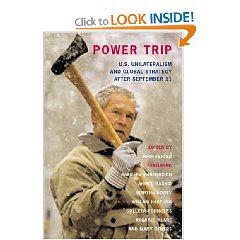
Below and at the link is a comprehensive discussion of the emerging grand strategy that is shaping Turkey's foreign initiatives. It deserves careful reading.
Stealth Superpower: How Turkey is chasing China to become the next big thing
by John Feffer
John Feffer is the co-director of Foreign Policy in Focus at the Institute for Policy Studies, writes its regular World Beat column, and co-directs its Balkans Project. His past essays, including those for TomDispatch.com, can be read at his Web site. He would like to thank Alexander Atanasov, Rebecca Azhdam, and Noor Iqbal for research assistance.
Why doesn’t Turkey have a comparable grip on American visions of the future? Characters in science fiction novels don’t speak Turkish. Turkish-language programs are as scarce as hen’s teeth on college campuses. Turkey doesn’t even qualify as part of everyone’s favorite group of up-and-comers, that swinging BRIC quartet of Brazil, Russia, India, and China. Turkey remains stubbornly fixed in Western culture as a backward-looking land of doner kebabs, bazaars, and guest workers.
But take population out of the equation – an admittedly big variable – and Turkey promptly becomes a likely candidate for future superpower. It possesses the 17th top economy in the world and, according to Goldman Sachs, has a good shot at breaking into the top 10 by 2050. Its economic muscle is also well defended: after decades of NATO assistance, the Turkish military is now a regional powerhouse.
Perhaps most importantly, Turkey occupies a vital crossroads between Europe, the Middle East, and Central Asia. A predominantly Muslim democracy atop the ruins of Byzantium, it bridges the Islamic and Judeo-Christian traditions, even as it sits perched at the nexus of energy politics. All roads once led to Rome; today all pipelines seem to lead to Turkey. If superpower status followed the rules of real estate – location, location, location – then Turkey would already be near the top of the heap.



